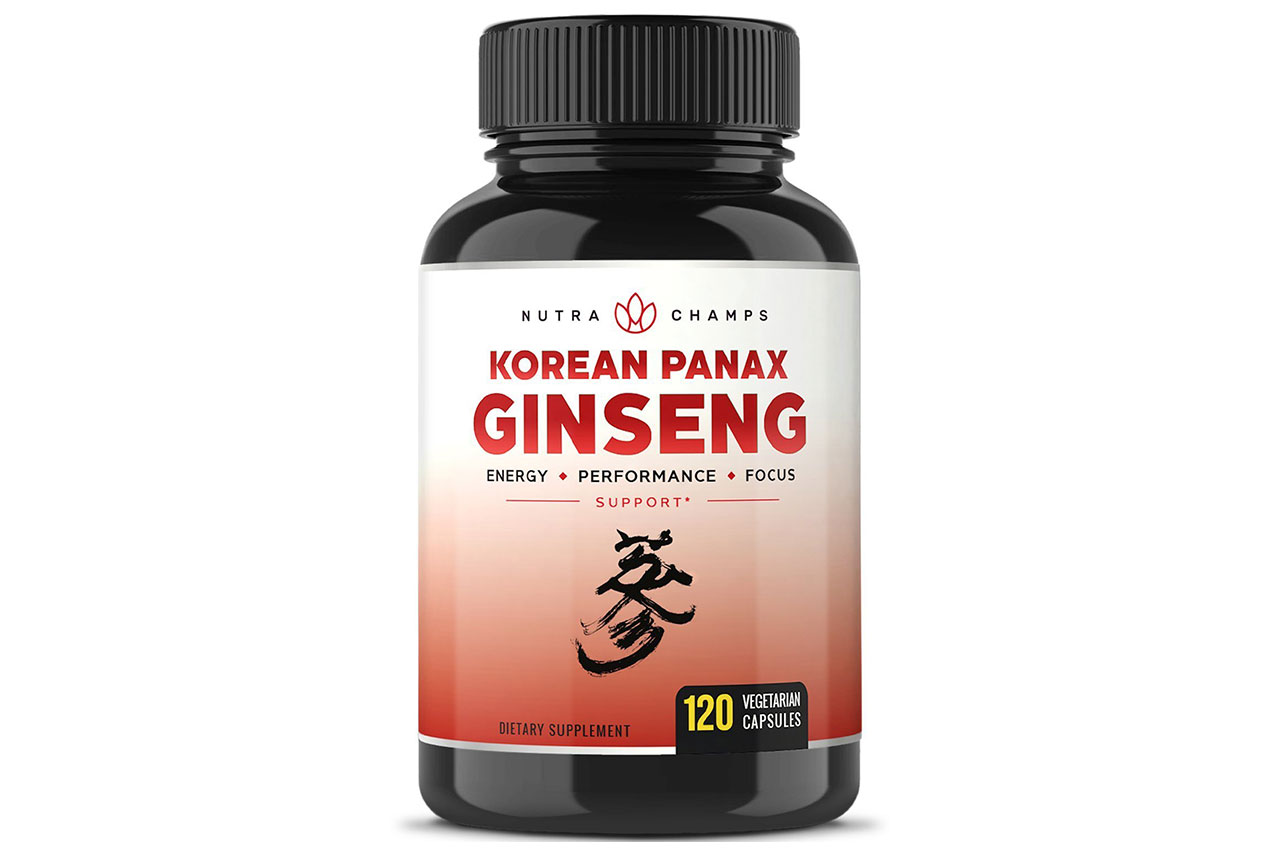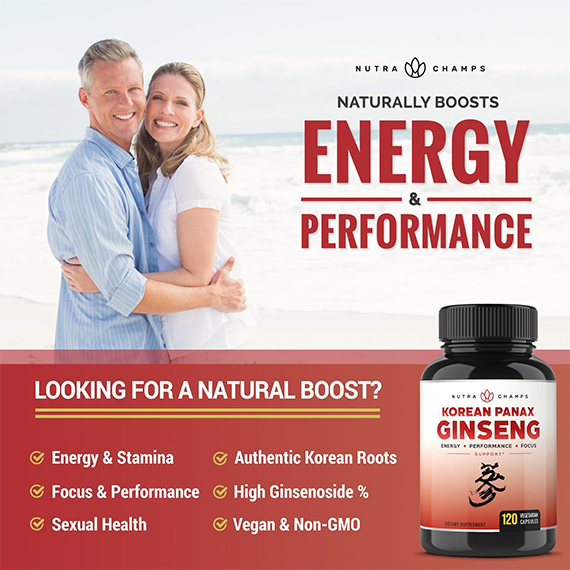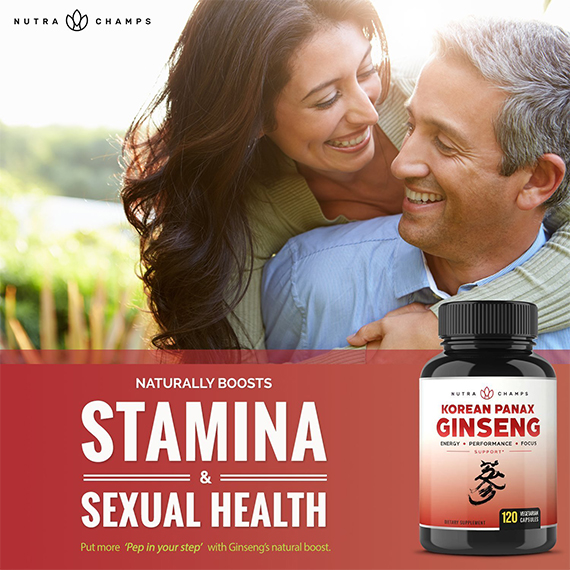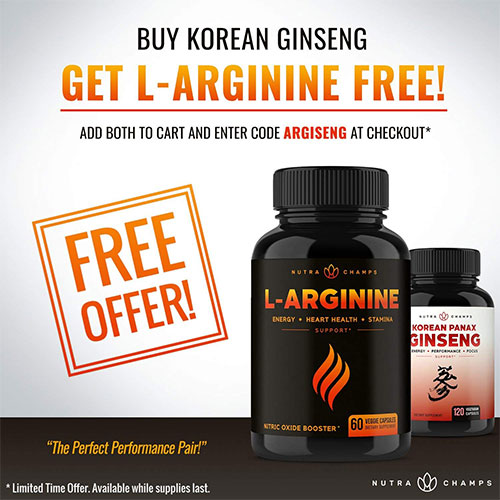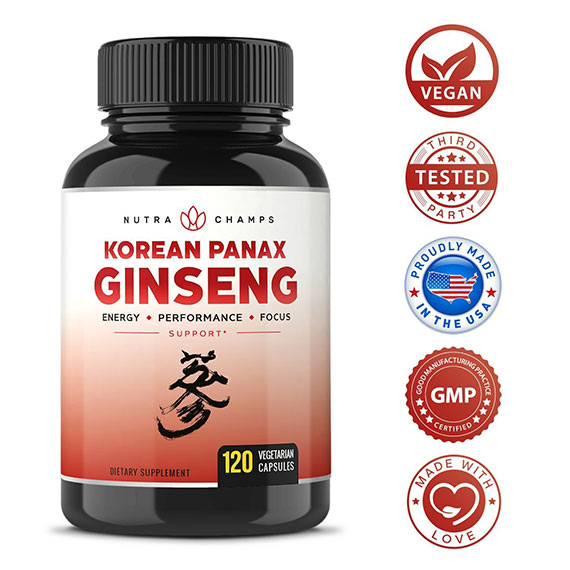Everyone has heard about ginseng – the root of youth and energy. Known for centuries in China and Korea in the last century, it has become a hit on the global market for healthy products. For more than a quarter of a century, it has also been a major ingredient of specialized sports supplements produced around the world.
Panax ginseng (Korean/Chinese) will be the focus of this article. This variety of ginseng is also called “real” ginseng because it is the most researched and proven member of the ginseng family, which appears to be an effective means of improving mood, immunity, cognitive abilities and libido.
What Is Ginseng?
Ginseng is a collective name of a group of plants known for centuries.
This group includes:
- Eleutherococcus senticosus -Sibirian Ginseng
- Panax quinquefolium – American Ginseng
- Panax ginseng- Korean/Chinese Ginseng
- Panax japonicum- Japanese ginseng
- Ashwagandha– Indian Ginseng
Panax ginseng is the most widely used type of ginseng. There is no direct botanical link between Eleutherococcus and Panax. Siberian ginseng is a plant of a different family and its name is rather metaphorical. The same applies to the Aswagandha, which is called “Indian ginseng.” Longjack (Tongkat ali) is called Malaysian ginseng and the “Maca”is a Peruvian ginseng.
The closest to the Asian ginseng is the American one, both of which are characterized by similar bio-components but in different proportions, which may have a role in the final effect.
The Asian ginseng itself is divided into “red” and “white”. These varieties are based on the herb process, similar to the Camellia sinensis tea extracted from one plant, but due to the processing methods it is divided into green, black and white.
The red ginseng is steamed and then dried, this process altering some of the bioactive components in favor of the herbal anti-inflammatory effect. Additional fermentation enhances the anti-inflammatory properties of ginseng. Red ginseng is characterized by a higher concentration of bioactive ginsenosides.
White ginseng is cultivated and air dried. It is characterized by a white or light-yellow color and is distinguished by fewer active ingredients.
Ginseng is an herb that stands out with many active ingredients. The basis of the beneficial effect is a group of steroidal saponins, also called ginsenosides. There are over 100 different vines, accounting for up to 20% of the active herbal composition.
Other active ingredients are polyesters, polysaccharides, oligosaccharides, beta-glucans and the amino acids L-arginine and gaba.
Ginseng- Physiological Effect
Toning. It acts as an adaptogen. It urges the body to prefer fatty acids instead of glycogen in energy production processes.
Because of its ability to lower levels of the hormone cortisol (insulin-suppressing hormone) in the blood stream, ginseng is dangerous for people with hypoglycemia!
In people with chronic hypoglycemia, ginseng should only be taken with a prescription.
It is believed that the main culprit for the positive effects of ginseng is the saponins called ginsenosides. They are distinguished by relatively easy and fast metabolism in the human body, and the main ginsenosides are metabolized by bacteria in the small and large intestine. After entering the stomach, the active substances move with the fluids, gradually penetrating through the walls of the duodenum, especially the small intestine.
The main observations in vitro studies have shown that vitamin deficiencies have the strongest effect on CYP1A1 enzymes CYP1A2. These are two varieties of aromatase. No ginsenoside can act alone, while a strong effect is seen in combining different varieties. The enzymes CYP1B1 and cytochrome P450 are also affected.
Proven And Potential Benefits For People
Carbohydrate Metabolism
Ginseng influences glucose metabolism in humans, although the effect is rather minor in healthy people.
The herb has been found to significantly lower fasting blood sugar levels in diabetics, whereas this effect can be seen in healthy people only after a high-dose shock. So far, there is no solid evidence that ginseng has an effect on insulin sensitivity, but such an option is acceptable.
It does not affect insulin levels, although it improves the overall glycemic profile in diabetics.
Neurological And Cognitive Effects
The use of doses of at least 400 mg daily ginseng significantly improves cognitive abilities, with the greatest impact on short-term memory and reaction time. It is enhanced when combined with ginkgo biloba. It is assumed that ginseng may not directly affect brain function, and this cognitive stimulation is due to strong anti-fatigue properties.
The plant is distinguished by the slowing of cognitive decline in the aging of the body. It can be due to the antioxidant effect on the brain.
Ginseng is one of the few herbs that effectively influence mood. Clinical data so far have clearly established that the herb has successfully counteracted depressive states and increased tranquility. The antidepressant effect has also been associated with the herb’s properties to suppress the symptoms of menopause, suggesting it may be stronger in women.
Immunostimulant And Anti-Inflammatory Effect
Ginseng has an antioxidant effect. It increases all three major antioxidants in the human body – glutathione, superoxide dismutase and catalase. Taking the herb reduces total oxidation in the body.
Ginseng also reduces DNA damage to lymphocytes, which may also be the reason it has anticancer properties.
At this stage, there are observations and significant evidence that ginseng may reduce the risk of developing some types of cancer. The most solid evidence is related to pancreatic, ovarian and colon cancer, but the overall risk of carcinogenic diseases is also supposed to decrease.
Effects On The Cardio-Vascular System
Ginseng has little effect on blood pressure, but most significantly reduces it in individuals with high blood pressure. Generally, the herb is not recommended as a means of lowering blood pressure.
On the other hand, the plant successfully improves the blood flow in the body, which therefore is the reason behind other positive effects on it like libido boosting.
The herb also affects the lipid profile in the blood. While the increase in “good” cholesterol is negligible, a decrease in “bad” cholesterol is noted. The effect on triglycerides is negligible.
Effect On Physical Performance
Ginseng is believed to improve sporadic performance due to its significant adaptogenic and anti-tiring properties.
Studies to date confirm that it can directly reduce lactic acid levels during exercise, and this effect is stronger in high-temperature workouts.
Ginseng also significantly lowers biomarkers of muscle damage. If a high dose is taken before exercise, decreased creatine kinase levels are noted up to 72 hours after physical activity.
It is questionable, however, whether the herb increases the sport performance and, in particular, anaerobic and aerobic endurance. No direct effect has yet been established and it is believed that the herb alone does not stimulate physical endurance through direct mechanisms.
Much of the stimulating properties are due to the anti-stress and anti-stress effect that are typical of the adaptogens.
Effects On The Reproductive System
Ginseng is a popular tonic for improving sexuality and treating some sexual problems in traditional medicine.
Science has so far confirmed that the herb effectively treats erection problems, with a daily dose of 3 grams of powder being completely effective. The herb may also increase sexual desire, but it is thought to be the strongest effect in postmenopausal women, but it is lacking in young men.
Ginseng does not directly affect testosterone in healthy men but increases it in infertile men. It also regulates testicular damage. Ginseng does not significantly affect other sex hormones.
Total Toning Effect
Ginseng is an adaptogen and as such has an anti-stress and toning effect. Observations on healthy individuals come from practice.
Clinical observations confirm that ginseng improves the overall tone and happiness of individuals who have suffered from a particular disease. The herb exhibits a fast and sharp anti-stress effect in difficult situations and sudden stress.
It may positively affect sleep, but only in some private cases. For example, ginseng improves sleep during the first night after a trip and a night’s sleep. This makes it a particularly suitable supplement for frequent travelers
Potential Benefits Based On Animal Testing
- Increase in appetite
- Neuroprotective properties in the brain
- Helps the body get rid of toxins
- Improving skin quality and wrinkle removal
- Increases hair growth
- Improves hearing and ear function
- Protective effect against ulcer and colic after use of non-steroidal anti-inflammatory or alcohol
What Are The Optimal Doses?
Most experts recommend doses between 1 and 2 grams of dry root Panax ginseng or about 200-400 milligrams of extract (at a concentration of 2 to 7%) daily for 15-20 days, followed by a month of pause.
400 mg of extract is the most appropriate daily dose to stimulate cognitive abilities. These doses refer to general preventive intake. A single intake is sufficient during the day.
For some medical conditions, up to 3 grams of extract per day divided into 3 doses are used.
The administration of Eleutherococcus senticosus is usually in doses of 2 to 3 grams of dry root or 300 to 400 milligrams of dry extract per day. The reception schedule is the same – 15-20 days, followed by a month of pause.
Possible Side Effects
In low doses, ginseng increases blood pressure. Increased blood pressure has been observed with increased doses.
More than 40 studies have been conducted on ginseng, suggesting that it is safe for human use. The main side effects that occur in some of the tested subjects, due to intolerances, are nausea, vomiting, abdominal pain, diarrhea and cramps. One case of hypoglycemia has been registered in type 2 diabetes.
Ginseng does not differ in toxicity. Even high doses up to 6 grams over 2 months do not increase toxicity markers.
At this stage, we do not recommend the use of ginseng by pregnant women. In vitro studies demonstrate that the herb can damage the fetus or embryo. So far there is no evidence of such an effect in humans, so our recommendation is purely preventive.
Which Products Are The Main Sources Of Ginseng?
Herbal products – teas, tinctures. Food supplements – granules, dry extract, powder, tablets, capsules, liquid extract.
The most common is ginseng capsules, with doses varying between 200 and 500 mg for extract or powder. NOW Foods offer Panax Ginseng of excellent quality in the form of capsules.
Ginseng is often also found in some compound products. You can more often find ginseng in multivitamin sports formulas like NOW Men’s Extreme Sports Multi and Eco Green Multi or male toning formulas like Mens virility power. Ginseng is an excellent addition to energy products, such as NOW Energy.
What Can Ginseng Be Combined With?
Ginseng combines perfectly with another popular herb like ginkgo biloba. The two herbs have a synergistic effect and mutually enhance their effects, and their combination affects more strongly on cognitive abilities.
Ginseng is a classic adaptogen product and as such can be combined with other adaptogens such as rhodiol, Ashwagandha,eleuthero and maca.
To stimulate libido and improve sexual life, ginseng is well combined with Long Jack and Tribulus.
Why Take Ginseng?
Taking it in an isolated form would help beginner athletes, especially older ones, in their first month, improving the adaptive abilities of their bodies.
Research has shown that the aerobic capacity of the lungs, the aerobic endurance of their muscles, the motivation of them and the fat burning are the most important.
Many bodybuilders have lowered immunity. Ginseng’s intake will compensate for the negative effect of heavy weight training, making their antibodies more and more effective.
MeanMuscles Recommendation: NutraChamps Korean Red Panax Ginseng
NutraChamps korean Red Panax Ginseng
1000mg – 120 Vegan Capsules Extra Strength Root Extract Powder Supplement w/High Ginsenosides for Energy, Perfromance & Mental Health Pills for Men & Women

